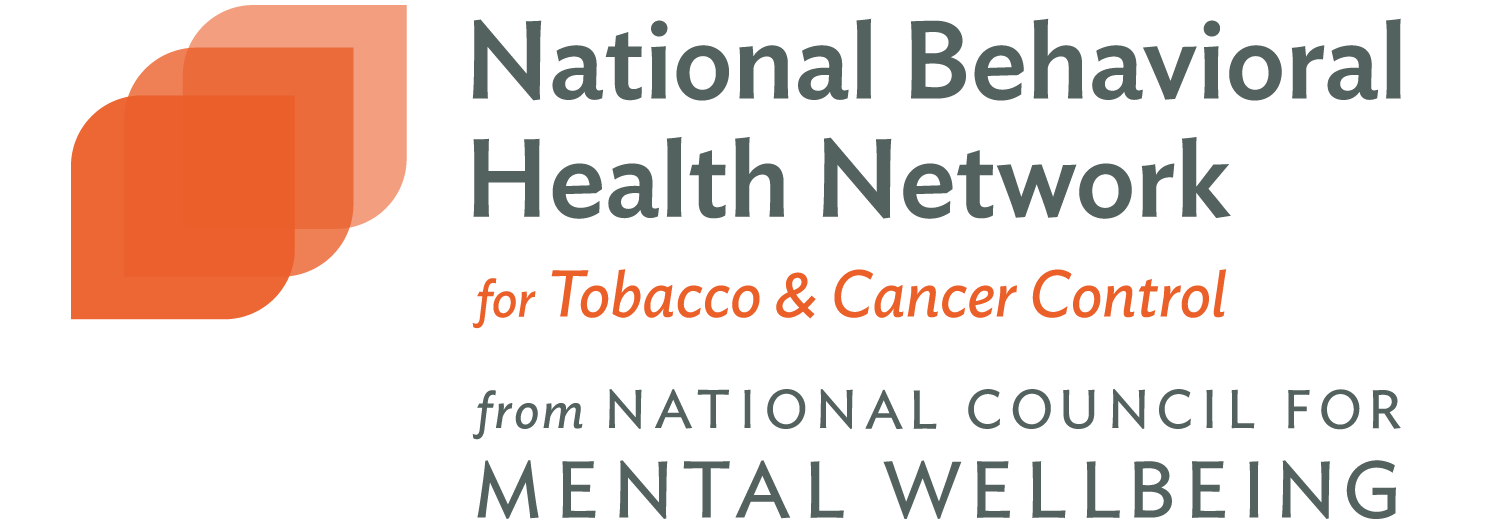Cross-Collaborative Partnerships: State Teams Support One Another in Practice Change Tobacco Cessation Efforts
By Jasmine Feng
On a hot summer day in late June 2023, ten teams from state tobacco control programs across the U.S. took a break from their computer screens and convened in Washington, D.C. to meet, share and learn from their peers. These state team leaders comprised the thirteenth cohort of a Community of Practice (CoP) led by the National Behavioral Health Network (NBHN) for Tobacco & Cancer Control. Despite being the thirteenth CoP cohort, this group was unique in that they were the first to incorporate an in-person event that culminated at the end of their practice change initiative. Over the course of 1.5 days, the state teams closed out a six-month learning collaborative with the goal of reducing commercial tobacco use-related disparities among individuals with mental health and substance use challenges. In partnership with public health agencies and behavioral health providers, state teams aimed to further their tobacco control efforts by engaging in peer exchange learning opportunities, tailored technical assistance, affinity calls with the CDC Networking2Save National Networks, and receiving individualized coaching from expert faculty.
The first day brimmed with nervous excitement and new conversations, the room sprinkled with bits of shyness but bubbling with opportunity and anticipation. Joined by their peers, state teams were eager to share some key accomplishments they’d achieved throughout the CoP, including:
- Maryland: Increased their state tobacco Quitline referrals through enhancing evidence-based tobacco use treatment strategies to educate and inform stakeholders.
- Massachusetts: Worked to identify and implement strategies to address tobacco use dependence in integrated primary care and behavioral health care settings using trauma-informed approaches.
- Florida: Partnered with community health directors to provide free Nicotine Replacement Therapies (NRTs) for individuals accepting referrals to tobacco cessation services.
- New Hampshire: Engaged with community mental health centers to develop and integrate tobacco-free policies as well as identify training measures for staff.
- Louisiana: Worked with their state department of health program initiative Well-Ahead to develop an agenda for tobacco-free initiative trainings and created a behavioral health subcommittee.
- Mississippi: Established meaningful and sustainable relationships with state behavioral health subject matter experts to work together to assess community mental health centers’ (CMHCs) readiness to go tobacco-free. Provided toolkits to CMHCs with behavioral health-centered tobacco-free trainings.
- Kentucky: Drafted and implemented a tobacco-free policy in River Valley, Kentucky’s designated regional community mental health center.
- Utah: Engaged with state peer support specialists to develop best practices for tobacco cessation and identify barriers to Quitline services to increase usage amongst clients.
- Nebraska: Created a tobacco control coalition to collaborate, share resources, and align goals across the state to increase tobacco cessation programming in behavioral health services.
- Oklahoma: Reviewed the Oklahoma Department of Mental Health and Substance Abuse workplan to understand Medicaid insurance billing best practices and conducted a SWOT analysis (strengths, weaknesses, opportunities, and threats) to identify any gaps.
Bonded by their desire to create change and shared interest in creating a positive impact in the states they hailed from, the CoP members soon came out of their shells to share common themes addressed, barriers, and potential next steps. Key takeaways from the conversations CoP members had during the wrap-up meeting included:
- The importance of partnerships, connecting with “nontraditional” partners and leaders in the state to work together towards a common goal.
- Intentionality in reaching out and engaging with communities, understanding the context in which communities exist.
- Using “Power mapping” as a tool to identify current and potential stakeholders.
These state leaders came to Washington DC for a wrap-up meeting to not only share with one another but also celebrate the incredible work they had done over the past six months. However, as the 2nd day came to a close, it was clear these once strangers, now newly formed partners, were not finished with the efforts they had started. After seeing how deliberate, engaged and determined these state leaders are, the NBHN CoP team is excited to see how they continue to implement tobacco control and cessation within their states, and how they do so with grace, intentionality, and community understanding.

